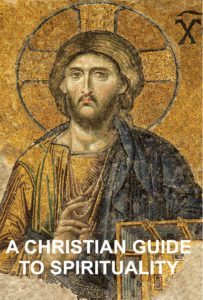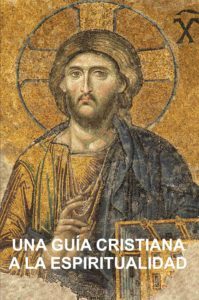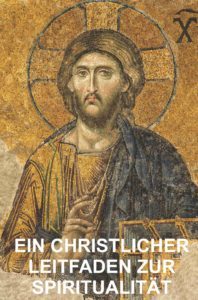Stephen W. Hiemstra's Blog, page 114
June 18, 2021
No Other Gods (First Commandment)

“You shall have no other gods before me.” (Exod 20:3; Deut 5:7)
By Stephen W. Hiemstra
Why does God claim exclusive right to our allegiance and forbid worship of other gods?
God’s sovereignty over our lives arises from his role as creator. Did we do anything to earn our creation? No. Our first independent act after God created us was in fact to sin and rebel against God’s only law—do not eat of the tree (Gen 2:17). Did we do anything to earn God’s restoration and salvation? No—God himself paid the penalty of our sin in sending his son to die on a cross on our behalf.
God’s permits only one path to salvation—through Jesus Christ. We cannot approach God on our own. Two reasons suggest why.
The first reason arises because of God’s eternal nature—God stands outside of time. God’s infinite nature implies that he can approach us, but we cannot approach him. Think of the problem of setting a meeting date with an eternal God—maybe God’s convenient date is 30 AD or maybe 3000 AD. How exactly are we to show up or even arrange the date? The apostle Paul writes: “For while we were still weak, at the right time Christ died for the ungodly.” (Rom 5:6)
The second reason arises because of God’s Holy nature. Holy implies sacred or set apart. God is holy; we are not. God’s holiness precludes us from approaching him on our own.
Because we cannot approach God on our own, either physically or morally, a hidden path to God outside of Christ logically does not exist. In fact, the idea that a hidden path to God exists ignores both of the above problems and focuses on three misconceptions about God’s holiness.
The first misconception argues that we are basically good and can approach God without divine intervention. If we were basically good, then God’s holiness would pose no problem. Christ’s sacrifice on the cross would be unnecessary and keeping the Law of Moses would be theoretically possible. Unfortunately, after Adam and Eve bad seed (original sin) ran in the family.
The second misconception argues that God himself is not good, which is obviously not true. As the ultimate sovereign, God is the ultimate lawmaker and defines what is good and what is not. It is not an accident that God declares creation to be good seven times in the creation account [1]. God declares creation good because he created and sustains it. Because our lives depend on both God’s creation of and provision for our universe, God must be good!
The third misconception presumes ignorance of God’s holiness. As the apostle Paul told the Athenians:
The times of ignorance God overlooked, but now he commands all people everywhere to repent, because he has fixed a day on which he will judge the world in righteousness by a man whom he has appointed; and of this he has given assurance to all by raising him from the dead. (Acts 17:30–31)
In view of modern communication systems, the Gospel message is close to reaching the entire human race—even people groups unknown to Paul’s generation. The ignorance argument is accordingly less credible today than in Paul’s time.
God deserves our worship. The first commandment in the law requires it.
Footnotes
[1] Genesis 1 verses 4, 10, 12, 18, 21, 25, and 31.
No Other Gods (First Commandment)
Also see:
Preface to A Christian Guide to Spirituality
Other ways to engage online:
Author site: http://www.StephenWHiemstra.net
Purchase Book: http://www.T2Pneuma.com
Newsletter: https://bit.ly/Ready_2021
The post No Other Gods (First Commandment) appeared first on T2Pneuma.net.
No Otros Dioses (El Primer Mandamiento)

“No tendrás otros dioses delante de Mí.” (Exod 20:3; Deut 5:7 NBH)
Por Stephen W. Hiemstra
¿Por que se requiere Dios el derecho exclusivo a nuestra lealtad y prohibe adoración de otros dioses?
La soberanía de Dios sobre nuestras vidas surge de su papel como creador. ¿Nos hacemos cualquiera cosa para ganar nuestra creación? No. Nuestro primer independiente acto después Dios nos creó fue de hecho a pecar y rebelar contra la ley solitario de Dios—no come la fruta del árbol (Gen 2:17). ¿Nos hacemos cualquiera cosa para ganar la restauración y salvación de Dios? No—Dios mismo pagó la pena de nuestros pecados al enviar su hijo a morir por la cruz en nuestro lugar.
Dios permita sólo un camino a la salvación—a través de Jesucristo. No podemos acercarnos Dios por nuestro cuenta. Dos razones sugieren por qué.
La primera razón surge por la naturaleza de un dios eterno—Dios está fuera del tiempo. La naturaleza infinita implica que él nos puede acercarse, pero no lo podemos acercarse. Piensa en el problema de establecer una reunión con un Dios eterna—tal vez su fecha conviene es año 30 o tal vez año 3,000. ¿Cómo exactamente vamos a aparecer o incluso organizar la fecha? El Apóstol Pablo escribe: “Porque mientras aún éramos débiles, a su tiempo Cristo murió por los impíos.” (Rom 5:6 NBH)
La segunda razón surge debido a la naturaleza santo de Dios. Santo implica sagrado o puesto aparte. Dios es santo; que no somos. La santidad de Dios nos impide de acercándose a él por nuestra cuenta.
Porque no podemos acercarnos a Dios por nuestra cuenta, ni físicamente ni moralmente, un camino oculto a Dios fuera de Cristo no existe lógicamente. De hecho, la idea de un camino oculto existe a Dios ignora ambos de los problemas arriba y centra en tres conceptos erróneos de la santidad de Dios.
El primer concepto erróneos sostiene que somos básicamente buenos y podemos acercarnos sin la intervención divina. Si fuéramos básicamente buenos, entonces la santidad de Dios no presenta un problema. El sacrificio de Cristo por la cruz estaría innecesario y guardando la ley de Moisés sería teóricamente posible. Por desgracia, después Adán y Eva mala semilla (pecado original) corría en la familia.
El segundo concepto erróneos sostiene que Dios mismo no es bueno, que es obviamente falso. Como el soberano ultimo, Dios es también el legislador final y define lo que es bueno y malo. No es accidente que Dios declara creación a ser bueno siete veces en la cuenta de creación [1]. Dios declara que creación es bueno porque él creó y lo sostiene. Debido nuestras vidas dependen de la creación de Dios del universo y su provisión, Dios tiene que ser bueno!
El tercero concepto erróneos presume ignorancia de la santidad de Dios. Como el Apóstol Pablo dijo los Atenienses:
“Por tanto, habiendo pasado por alto los tiempos de ignorancia, Dios declara ahora a todos los hombres, en todas partes, que se arrepientan. “Porque El ha establecido un día en el cual juzgará al mundo en justicia, por medio de un Hombre a quien El ha designado, habiendo presentado pruebas a todos los hombres cuando Lo resucitó de entre los muertos.” (Acts 17:30-31 NBH)
En vista de sistemas de comunicación moderna, el Evangélico mensaje está cerca de alcanzar los enteros humanos las personas de raza incluso grupos desconocidos para la generación de Pablo. El argumento de ignorancia es consecuencia menos creíble ahora que en la época de Pablo.
Dios merece nuestra adoración. El primer mandamiento en la ley lo requiere.
[1] Génesis 1 versículos 4, 10, 12, 18, 21, 25 y 31.
No Otros Dioses (El Primer Mandamiento)
Ver también:
Prefacio de La Guía Cristiana a la Espiritualidad
Otras formas de participar en línea:
Sitio del autor: http://www.StephenWHiemstra.net
Comprar Libro: http://www.T2Pneuma.com
Boletín informativo: https://bit.ly/Ready_2021
The post No Otros Dioses (El Primer Mandamiento) appeared first on T2Pneuma.net.
Keine Anderen Götter (Erstes Gebot)

Von Stephen W. Hiemstra
Du sollst keine anderen Götter haben neben mir. (Exod 20:3; Deut 5:7)
Warum beansprucht Gott das ausschließliche Recht auf unsere Treue und verbietet die Anbetung anderer Götter?
Gottes Souveränität über unser Leben ergibt sich aus seiner Rolle als Schöpfer. Haben wir etwas getan, um unsere Schöpfung zu verdienen? Nein. Unsere erste unabhängige Handlung, nachdem Gott uns geschaffen hatte, bestand eigentlich darin, gegen Gottes einziges Gesetz zu sündigen und zu rebellieren—iss nicht vom Baum (Gen 2:17). Haben wir etwas getan, um Gottes Wiederherstellung und Erlösung zu verdienen? Nein—Gott selbst hat die Strafe unserer Sünde bezahlt, indem er seinen Sohn geschickt hat, um für uns am Kreuz zu sterben.
Gott erlaubt nur einen Weg zur Erlösung—durch Jesus Christus. Wir können uns Gott nicht alleine nähern. Zwei Gründe legen nahe, warum.
Der erste Grund liegt in der ewigen Natur Gottes—Gott steht außerhalb der Zeit. Gottes unendliche Natur impliziert, dass er sich uns nähern kann, aber wir können uns ihm nicht nähern. Denke an das Problem, ein Treffen mit einem ewigen Gott festzulegen—vielleicht ist Gottes passendes Datum 30 n. Chr. Oder vielleicht 3000 n. Chr. Wie genau sollen wir auftauchen oder sogar den Termin vereinbaren? Der Apostel Paulus schreibt: “Denn Christus ist schon zu der Zeit, als wir noch schwach waren, für uns Gottlose gestorben.” (Rom 5:6)
Der zweite Grund liegt in der heiligen Natur Gottes. Heilig bedeutet geheiligt oder getrennt. Gott ist heilig; wir sind nicht. Gottes Heiligkeit hindert uns daran, uns ihm alleine zu nähern.
Weil wir uns weder physisch noch moralisch allein Gott nähern können, gibt es logischerweise keinen verborgenen Weg zu Gott außerhalb von Christus. Tatsächlich ignoriert die Idee, dass ein verborgener Weg zu Gott existiert, beide oben genannten Probleme und konzentriert sich auf drei Missverständnisse über Gottes Heiligkeit.
Das erste Missverständnis besagt, dass wir grundsätzlich gut sind und uns Gott ohne göttliches Eingreifen nähern können. Wenn wir im Grunde genommen gut wären, wäre Gottes Heiligkeit kein Problem. Das Opfer Christi am Kreuz wäre unnötig und die Einhaltung des Gesetzes von Moses wäre theoretisch möglich. Leider lief nach Adam und Eva schlechter Same (Erbsünde) in die Familie.
Das zweite Missverständnis argumentiert, dass Gott selbst nicht gut ist, was offensichtlich nicht wahr ist. Als ultimativer Souverän ist Gott der ultimative Gesetzgeber und definiert, was gut ist und was nicht. Es ist kein Zufall, dass Gott die Schöpfung sieben Mal im Schöpfungsbericht für gut erklärt (Gen 1). Gott erklärt die Schöpfung für gut, weil er sie geschaffen und erhalten hat. Weil unser Leben sowohl von Gottes Erschaffung als auch von der Versorgung unseres Universums abhängt, muss Gott gut sein!
Das dritte Missverständnis setzt die Unkenntnis der Heiligkeit Gottes voraus. Wie der Apostel Paulus den Athenern sagte:
Zwar hat Gott über die Zeit der Unwissenheit hinweggesehen; nun aber gebietet er den Menschen, dass alle an allen Enden Buße tun. Denn er hat einen Tag festgesetzt, an dem er richten will den Erdkreis mit Gerechtigkeit durch einen Mann, den er dazu bestimmt hat, und hat jedermann den Glauben angeboten, indem er ihn von den Toten auferweckt hat. (Acts 17:30-31)
Angesichts moderner Kommunikationssysteme ist die Botschaft des Evangeliums nahe daran, die gesamte Menschheit zu erreichen—sogar Menschengruppen, die der Generation von Paulus unbekannt sind. Das Unwissenheitsargument ist dementsprechend heute weniger glaubwürdig als zu Pauls Zeiten.
Gott verdient unsere Anbetung. Das erste Gebot im Gesetz verlangt es.
Keine Anderen Götter (Erstes Gebot)
Siehe auch:
Einleitung auf Ein Christlicher Leitfaden zur Spiritualität
Andere Möglichkeiten, sich online zu engagieren:
Autoren Seite: http://www.StephenWHiemstra.net
Herausgeber Seite: http://www.T2Pneuma.com
Mitteilungsblatt: https://bit.ly/Ready_2021
The post Keine Anderen Götter (Erstes Gebot) appeared first on T2Pneuma.net.
June 15, 2021
Vaughn: Cherishing Time God’s Way

Ellen Vaughn. 2007. Time Peace: Living Here and Now with a Timeless God. Grand Rapids: Zondervan.
Review by Stephen W. Hiemstra [1]
Ellen Vaughn starts her book, Time Peace, with a question: How can an earth-bound person really connect with an eternal God? Does God’s Shalom rub off on the people we meet every day or are we afflicted with hurry sickness? (16-17) If our lives are deprived of Shalom and dominated by hurry sickness, what can be done about it?
Ellen segments the time problem into 4 parts:
Experiencing Time;
Managing Time;
Re-viewing Time: A New Paradigm; and
Enjoying Time.
God’s perspective on time is different than ours. God manages time; time manages us. For us, a wristwatch serves as a kind of virtual handcuff (61). God is eternal and the stars serve as his wrist-watch (Job 9:3-9; 19).
The biblical notion of stewardship: doesn’t really strike a cord with many 21-century Americans (74). Ellen asks: whether we live to the age of of 34 or 104, how do we use the time we are given? (77) The biblical view of time (stewardship) is in strong tension with our everyday experience of time (the wristwatch)?
Reviewing many details of quantum physics, Ellen notes that science does not seem to explain the created universe as neatly as we learned in high school. She remarks:
I do find it interesting that in the Bible…that is thousands of years old…[it] casually makes claims that seem to jibe with what is intimated in the weird world of 21st century quantum physics (187).
When we experience the eternal God, God must deliberately break into our time-bound world to touch our lives. We experience God’s intrusion as a kairos moment—a Greek word describing a moment of crisis and decision [2]. Our usual experience of time—chronos time as measure by our watches—is not nearly so threatening.
In evaluating how to enjoy time, Ellen asks: How do we seize the moment and invest time to extend God’s kingdom? (206)
In her book, Time Peace, Ellen’s writing craft is displayed in at least 4 dimensions:
She does her homework. In researching time as a topic, she reviewed film, time management books, scripture, and scientific literature. I suspect that she also did a number of interviews.
She paints wonderful mental pictures and tells numerous stories. I will never forget her lesson on the six deadly sins and how they relate to Gilligan’s Island (8) [3].
She is willing to take theological and intellectual risks. Most Luke commentaries do not offer alternative readings of the Mary and Martha story. Likewise, I suspect that most English majors do not write extensively on Einstein’s theory of relativity and string theory.
She throws curve balls in her prose. I doubt, for example, that she really sits much on the beach throwing alka seltzer tablets in the air to the sea gulls, but the thought is interesting.
Time Peace is perceptive, theologically engaging, and witty. Small groups will want to look at it for study and discussion.
Footnotes
[1] Ellen Vaughn (www.EllenVaughn.com) is a local author who I met in 2007 at a meeting of the Capital Christian Writers Club (www.CapitalChristianWriters.org).
[2] I was personally touched by her story about Vicky Armel, a police officer gunned down for no apparent reason within walking distance of my home in Centreville, Virginia. Only 2 years prior to her death, Vicky unexpectedly committed her life to Christ—a kairos moment. Her testimony was recorded on Easter Sunday. Vicky accordingly had the rare privilege of addressing her own funeral via video tape (183-185).
[3] Ellen writes: Students of the show advance the theory that the Professor exhibits the deadly sin of pride…Ginger, the lascivious movie star, represents lust. Envy goes to Maryann who wanted to be Ginger. Thurston Howell the Third, who took a large trunck full of money on a three-hour cruise, is greed. Since Mrs Howell never did much of anything at all, she is sloth…We are left with the sins of anger and gluttony, and the mad and corpulent Skipper personifies them both (88).
Vaughn: Cherishing Time God’s Way
Also see:
Wicks Seeks Availability Deepens Faith
Books, Films, and Ministry
Other ways to engage online:
Author site: http://www.StephenWHiemstra.net
Publisher site: http://www.T2Pneuma.com
Newsletter: https://bit.ly/Ready_2021
The post Vaughn: Cherishing Time God’s Way appeared first on T2Pneuma.net.
June 14, 2021
Ten Commandments: Monday Monologues (podcast) June 14, 2021

By Stephen W. Hiemstra
This morning I will share a prayer and reflect on Ten Commandments. After listening, please click here to take a brief listener survey (10 questions).
To listen, click on this link.
Hear the words; Walk the steps; Experience the joy!
Ten Commandments: Monday Monologues (podcast) June 14, 2021
Also see:
Monday Monologue On March 26, 2018
Other ways to engage online:
Author site: http://www.StephenWHiemstra.net,
Publisher site: http://www.T2Pneuma.com.
Newsletter: https://bit.ly/Ready_2021
The post Ten Commandments: Monday Monologues (podcast) June 14, 2021 appeared first on T2Pneuma.net.
June 13, 2021
Prayer Day 30
 Available on Amazon.com
Available on Amazon.comAlmighty Father, beloved Son, Holy Spirit.
Bless us so that we will take your laws into our hearts and follow them in our daily lives.
May sin and evil not attract us.
May our friends practice righteousness and may we follow their example.
Guide us with songs of righteousness and holy prayers (Ps 1:1–2).
Let us honor your holy boundaries and remove the sin from our lives.
To you and you alone be the glory. Amen.
Prayer Day 30
Also see:
Believer’s Prayer
Other ways to engage online:
Author site: http://www.StephenWHiemstra.net
Purchase Book: http://www.T2Pneuma.com
Newsletter: https://bit.ly/Ready_2021
The post Prayer Day 30 appeared first on T2Pneuma.net.
Oración Dia 30
Por Stephen W. Hiemstra
Padre Todopoderoso, Hijo Amado, Espíritu Santo.
Bendícenos para que podamos llevar a tus leyes en nuestros corazones y seguirlas en nuestros diario vivir.
Que el pecado y la maldad no nos atraigan.
Que nuestros amigos practiquen rectitud y que sigamos su ejemplo.
Guíanos con cánticos de rectitud y oraciones santas (Sal. 1:1-2).
Que podamos honrar tus limitaciones santas y quita el pecado de nuestras vidas.
Para Tí y sólo a Tí sea la gloria, Amén.
Oración Dia 30
Ver también:
Prefacio de La Guía Cristiana a la Espiritualidad
Otras formas de participar en línea:
Sitio del autor: http://www.StephenWHiemstra.net
Comprar Libro: http://www.T2Pneuma.com
Boletín informativo: https://bit.ly/Ready_2021
The post Oración Dia 30 appeared first on T2Pneuma.net.
Gebetstag 30
Vor Stephen W. Hiemstra
Allmächtiger Vater, geliebter Sohn, Heiliger Geist,
Segne uns, damit wir deine Gesetze in unsere Herzen nehmen und ihnen in unserem täglichen Leben folgen.
Mögen Sünde und Böses uns nicht anziehen.
Mögen unsere Freunde Gerechtigkeit üben und mögen wir ihrem Beispiel folgen.
Führe uns mit Liedern der Gerechtigkeit und heiligen Gebeten (Ps 1:1-2).
Lasst uns eure heiligen Grenzen ehren und die Sünde aus unserem Leben entfernen.
Für dich und dich allein sei die Herrlichkeit. Amen.
Gebetstag 30
Siehe auch:
Einleitung auf Ein Christlicher Leitfaden zur Spiritualität
Andere Möglichkeiten, sich online zu engagieren:
Autoren Seite: http://www.StephenWHiemstra.net
Herausgeber Seite: http://www.T2Pneuma.com
Mitteilungsblatt: https://bit.ly/Ready_2021
The post Gebetstag 30 appeared first on T2Pneuma.net.
June 11, 2021
The Ten Commandments

“And God spoke all these words, saying, I am the Lord your God, who brought you out of the land of Egypt, out of the house of slavery” (Exod 20:1-2).
By Stephen W. Hiemstra
Why, as Christians, do we need to know about the Ten Commandments? The short answer is because Jesus tells us to “For truly, I say to you, until heaven and earth pass away, not an iota, not a dot, will pass from the Law until all is accomplished” (Matt 5:18).. Reformer John Calvin reinforced this point and said that the law had three chief purposes: to teach us about God’s will, to aid civil authorities, and to guide our daily lives (Haas 2006, 100).
Still, as postmodern people, we have contempt for law. We live undisciplined lives, ignore posted speed limits, and cheat on our taxes. We want to be independent and in control of our own lives. We do not want anyone, not even God, telling us what to do. The Ten Commandments remind us that we remain rebellious sons and daughters of Adam and Eve.
Our rebellion against God is called sin. Sin takes at least three forms: falling short of expectations (sin), breaking a law (transgression), and not doing something we should do (iniquity). I sin when I try to love God with all my heart, soul, and mind, but fail to do so consistently. I transgress the law when I murder someone. I commit iniquity when I ignore (dishonor) my parents in their old age, leaving their care to my siblings when I am able to help but refuse to. Although these three words are used interchangeably, these distinctions remain helpful.
In our rebellion, the law comes as an act of grace pointing us the way back to God. The Ten Commandments can be thought of as God’s healthy boundaries for life in the Christian community and as an example to the world.
So what is helpful to know about the Ten Commandments?
The Bible tells us that God is the Lord of lords and uses covenants to define His relationship with us. A covenant is a treaty or agreement outlining the duties and obligations of the ruler to the ruled. The Bible outlines covenants with Adam, Noah, Abraham, Moses, and David and the New Covenant with Christ. The Ten Commandments are part of the covenant with Moses.
Jeremiah prophesied the coming of a new covenant that would be written on our hearts (Jer 31:30-31). Matthew’s Gospel describes this new covenant with five explicit commandments given by Jesus: Matt 5:17-20, Matt 17:9, Matt 19:16-21, Matt 22:36-40, Matt 28:18-20. Two of these have already been mentioned: obey the law (Matt 5:17-20) and the double love command (love God; love neighbor in Matt 22:36-40).
Why do Christians need to understand the Ten Commandments? The Ten Commandments help us to understand what it means to be God’s people and to follow Christ’s commandment to obey the law.
References
Haas, Guenther H. 2004. “Calvin’s Ethics.” In The Cambridge Companion to John Calvin, 93–105. Edited by Donald K. McKim. New York: Cambridge University Press.
The Ten Commandment
Also see:
Preface to A Christian Guide to Spirituality
Other ways to engage online:
Author site: http://www.StephenWHiemstra.net
Purchase Book: http://www.T2Pneuma.com
Newsletter: https://bit.ly/Ready_2021
The post The Ten Commandments appeared first on T2Pneuma.net.
Los Diez Mandamientos

“Entonces Dios habló todas estas palabras diciendo: “Yo soy el SEÑOR tu Dios, que te saqué de la tierra de Egipto, de la casa de servidumbre (de la esclavitud).” (Exod 20:1-2 NBH)
Por Stephen W. Hiemstra
¿Como cristianos, por qué tenemos que saber acerca de los Diez Mandamientos? La respuesta breve es porque Jesús nos dice”Porque en verdad les digo que hasta que pasen el cielo y la tierra, no se perderá ni la letra más pequeña ni una tilde de la Ley hasta que toda se cumpla.” (Matt 5:18 NBH). Reformador Juan Calvin reforzó este punto y dijo que la ley tiene tres propósitos principales: para ensenar nos acerca de la voluntad de Dios, para ayudar las autoridades civiles, y para guiar nuestras vidas cotidiana (Haas 2006, 100).
Aún así, como personas posmodernas, tenemos desprecio para la ley. Vivimos vidas indisciplinadas, ignoramos las limites de velocidad, y engañan por nuestros impuestos. Deseamos ser independiente y en control de nuestras vidas propias. No queremos que nadie, ni siquiera Dios, que nos dice qué hacer. Los Diez Mandamientos nos recuerdan que seguimos siendo rebeldes hijos y hijas de Adán y Eva .
Nuestra rebelión contra Dios se llama pecado. El pecado toma por lo menos tres formas: cayendo debajo de expectaciones (pecados), rompiendo una ley (transgresión), y no haciendo lo que debemos (iniquidad). Yo pecado cuando trato a amar Dios con toda mi corazón, alma, y mente, pero no logro hacerlo consistentemente. Yo transgredo la ley cuando mato alguien. Yo cometo iniquidad cuando ignoro (deshonro) mis padres en su vejez, dejando a su cuidado a mis hermanos cuando soy capaz de ayudar, pero niego a. A pasar de que las tres palabras se utilizan intercambiable, estas distintas permanece útil.
En nuestra rebelión, la ley se presenta como un acto de gracia que nos apunta al camino a volver a Dios. Los Diez Mandamientos puede pensado como las límites saludables de Dios para la comunidad Cristiana y como un modelo para el mundo.
¿Así que lo que es útil a saber acerca de los Diez Mandamientos?
La Biblia nos dice que Dios es el Señor de Señores y usa los pactos para definir su relación con nosotros. Un pacto es un tratado o acuerdo que delinea los deberes y obligaciones del gobernador y los gobernados. La Biblia describe pactos con Adán, Noé, Abraham, Moisés, y David, y el pacto nuevo con Cristo. Los Diez Mandamientos son parte del pacto con Moisés.
Jeremías profetizo la venida de un pacto nuevo que estaría escrito en nuestras corazones (Jer 31:30-31). El evangélico de Mateo describe este pacto nuevo con cinco mandamientos explícitos dadas de Jesús: Matt 5:17-20, Matt 17:9, Matt 19:16-21, Matt 22:36-40, Matt 28:18-20. Dos de esos habían ya sido mencionado: obedecer la ley (Matt 5:17-20) y el doble amor mandamiento (ama Dios; ama vecino en Matt 22:36-40).
¿Por qué los cristianos necesitan entender los Diez Mandamientos? Los Diez Mandamientos nos ayudan a entender lo que significa a ser el pueblo de Dios y a seguir la mandamiento de Cristo para obedecer la ley.
Referencias
Haas, Guenther H. 2004. “Calvin’s Ethics.” In The Cambridge Companion to John Calvin, 93–105. Edited by Donald K. McKim. New York: Cambridge University Press.
Ver también:
Prefacio de La Guía Cristiana a la Espiritualidad
Otras formas de participar en línea:
Sitio del autor: http://www.StephenWHiemstra.net
Comprar Libro: http://www.T2Pneuma.com
Boletín informativo: https://bit.ly/Ready_2021
The post Los Diez Mandamientos appeared first on T2Pneuma.net.



